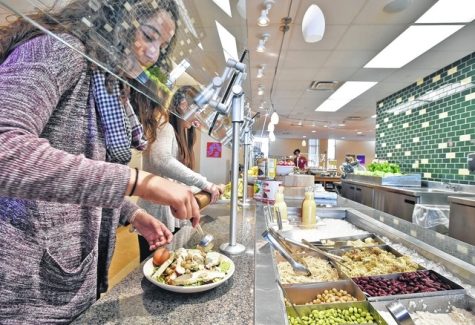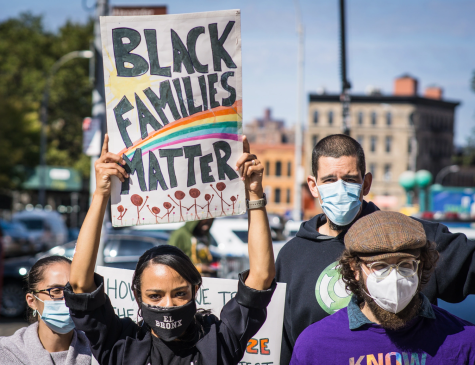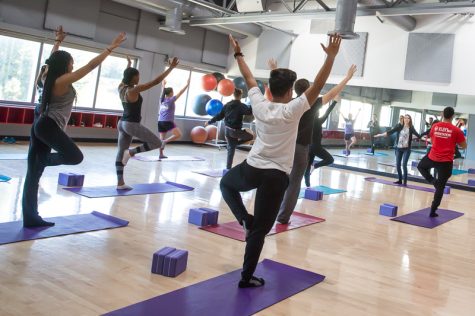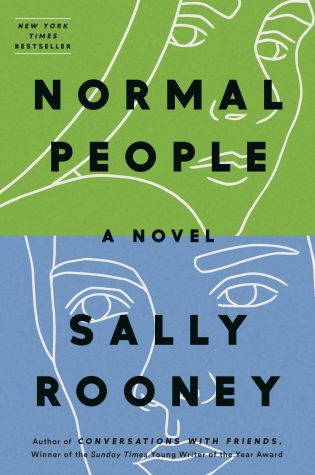No Plan B vending machines at CSUEB
May 3, 2017
Gone are the days of embarrassing store purchases and unnecessary physical examinations; buying condoms, pregnancy tests or emergency contraceptive is now as simple as shoving some bills into a vending machine, at least at UC Davis.
On April 21, a project headed by senior Parteek Singh to make reproductive health and wellness services more accessible to college students came to fruition in the form of a ‘wellness-to-go’ machine, the first of its kind on the campus, according to the LA Times.
A managerial economics major and student senator with the Associated Students at UC Davis, Singh’s main initiatives were to increase sexual health resources and destigmatize sexual health issues on campus, according to his 2015 senator candidate statement on the ASUCD website.
An indispensable dispensary
Plan B, also known as the “morning-after pill,” is one of the more popular backup birth control methods that can be taken within five days after unprotected sex, according to Andrea Wilson, Associate Vice President Student Support Services at Cal State East Bay. It prevents seven out of eight pregnancies and is not an abortion pill; if you’re already pregnant Plan B is ineffective.
Two years ago, when I found myself in need of Plan B, a vending machine would have been the ideal dispensary. First of all, buying from a vending machine is comfortably impersonal; you get to skip the awkward moment in line when the product slowly slides down the conveyor belt to the scanner, exposed for customers and cashier to see.
Second of all, it’s expensive. After finding it at Rite Aid for $50, I decided to make an appointment with Planned Parenthood, where I could get it for free. However, that meant waiting hours for an impromptu visit—if they could squeeze me in at all—followed by the procedural pee-in-a-cup routine and customary lecture about the dangers of unprotected sex. I needed the emergency birth control, not a crash course in sex education.
I would’ve loved to have an option like this. Apparently other students vocalised the same feelings, because Singh saw a need and filled it.
Supply meeting demand
Singh developed the concept for a Plan B vending machine in 2015 after friends expressed frustration with the inconsistent stock of emergency contraceptives in the town pharmacy and the Student Health and Wellness Center on campus, according to the Sacramento Bee.
UC Davis students were formerly able to buy Plan B at the wellness center for $35, the cheapest rate in Yolo County, according to Parteek’s candidate statement. UC Davis students can now purchase the contraceptive for $30 from the vending machine.
His original proposal focused on providing more affordable emergency contraceptives, however, he received pushback from the UC Davis administration on the vending machines, so he broadened the concept to include other wellness products like allergy pills, pain relievers and feminine hygiene products, according to the Sacramento Bee.
Are we falling behind?
Cal State East Bay’s Student Health and Wellness Center provides most of the products offered in the ‘wellness-to-go’ machines free to East Bay students, such as condoms, tampons and pads. The emergency contraceptive Plan B costs $34.99 with a prescription, $38.40 without, at the Student Health and Wellness Center and is offered free to students enrolled in the Family PACT program, a state program that covers family planning services based on income guidelines, according to Wilson.
FamilyPACT covers birth control, emergency contraception, pregnancy testing, PAP smears, HIV screenings and sexually transmitted infection treatment, among other services, according to East Bay’s Student Health and Counseling Services page. Three hundred and seventy six students were enrolled in Family PACT during the Fall quarter, according to Wilson.
Condoms and feminine products are given away for free to all students in the Student Health and Wellness Center and the student food pantry run by H.O.P.E. (Helping Our Pioneers Excel), a program that addresses food insecurity and student homelessness, also provides feminine products for free to qualifying students, according to Wilson.
The campus wellness center only closes for one week a year, from Christmas to New Years when the entire campus is closed, and is not open on the weekends, according to Wilson.
East Bay’s student health center offers condoms, oral contraceptive pills, the NuvaRing, the OrthoEvra Patch, the Depo-Provera shot, Diaphragms, the Nexplanon implant and emergency contraception like Plan B, according to the student Health and Wellness center website. Wilson told the Pioneer that the most recent addition, the Nexplanon implant, was added around two years ago in an effort to provide a long term birth control option for students.
Convenience is everything
I’ve personally never visited Cal State East Bay’s Student Health Center for contraceptives because I never had time to wait to be seen between classes. Being a full-time student who stacked all her classes on campus two days a week for the past two years to accommodate my job meant cramming my days full. In college, time is one of the most coveted assets, besides money and home-cooked meals, of course. Convenience is everything. Vending machines are already fixtures at colleges, but a cookie never prevented a pregnancy; why not utilize these machines for something actually useful?
However, there has been no discussion about implementing any wellness machines like this on campus, Wilson confirmed.
If CSUEB students need emergency contraceptives, they can make an appointment with a doctor to get a prescription or purchase it directly from a pharmacy or retail store without one.
Wilson told the Pioneer that buying the pill over the counter, or even from a vending machine, does not address other potential factors such as sexually transmitted infections. “The advantage of making an appointment is that it allows a discussion about unprotected sex concerns, an opportunity to actually take a pregnancy test as well as potential testing for any sexually transmitted diseases as a result.” However, if you don’t need STD or pregnancy testing, making a wellness appointment is an unnecessary waste of time.
Critics have argued that increased accessibility of Plan B in the vending machines promotes unprotected sex; however, college students are doing it anyway and it’s better that they have options when accidents happen.
According to Wilson, there were only seven positive pregnancy tests documented through the health center’s lab for the fall quarter 2016. There were 2,555 appointments made with medical providers in East Bay’s student health center. These appointments ranged from pregnancy appointments to cold, flu, physicals, STD checkups and more.
Trumping the Republican agenda
On Saturday, President Donald Trump clocked 100 days in office and has signed 33 executive orders during his presidency, according to the White House Press Office. Several of his controversial initiatives to defund Planned Parenthood and restrict access to abortion and other reproductive services have contributed to global movements like the Women’s March on Washington on Jan 21, a worldwide protest that advocated for women’s reproductive rights among other issues. It appears that Californians are also coming up with innovative ways to localize reproductive health care.
On March 17, Sen. Connie Leyva, D-Chino, introduced Senate Bill 320, which would require student health insurance plans offered through the California State University, University of California and California Community College systems to cover abortions using state funding, according to the bill. Colleges with on-campus health centers would also be required to offer nonsurgical abortion methods.
In light of the Republican agenda to repress women’s reproductive freedoms, it is important now more than ever to localize efforts to make women’s health care accessible and affordable.

















